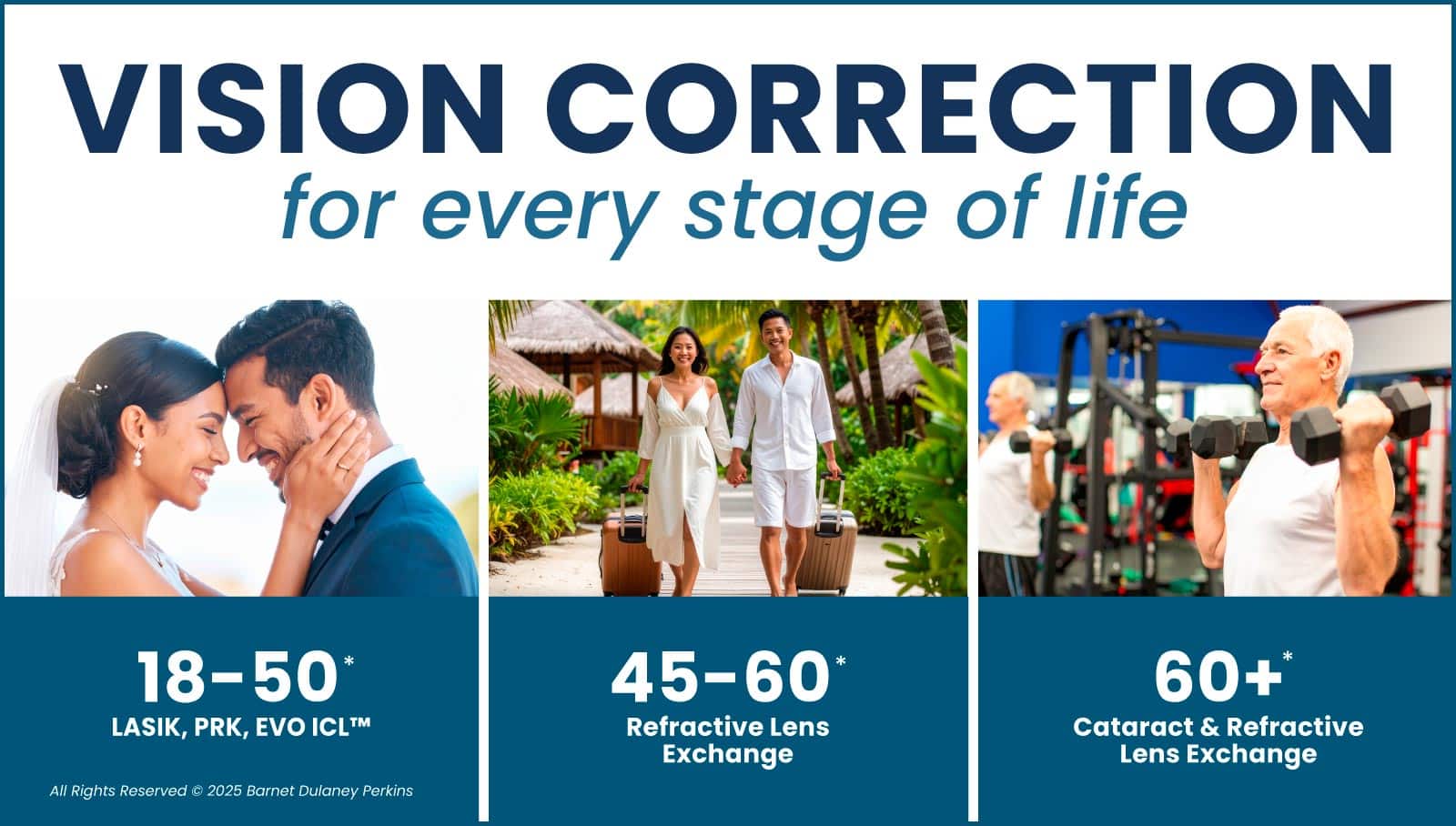
LASIK Alternatives
Explore THE BEST Vision Correction Options in Arizona.

LASIK Is Not Right for Everyone—But Great Alternatives Exist
While LASIK has helped millions achieve life-changing vision, it’s not the best option for everyone. And that’s okay.
Several factors can affect your LASIK candidacy. Age is one of them—you must be at least 18, and the ideal window is typically between 18 and 45. Beyond age, things like corneal thickness, overall eye health, previous eye surgeries, or certain medical conditions may make LASIK less suitable.
But here’s the good news: if LASIK isn’t the right fit, there may be several excellent LASIK alternatives.
Procedures like PRK, Refractive Lens Exchange (RLE), and EVO ICL offer safe, effective vision correction for people without LASIK. Each option is tailored to specific needs, and your eye doctor can help you choose the best option for your eyes and lifestyle.
PRK
Photo-refractive keratectomy (PRK) is a laser vision correction surgery in which an outer layer of the eye’s surface is removed to avoid an incision in the cornea. Like LASIK, a laser is then used to reshape the cornea to correct refractive errors. Visual improvement and recovery time may take a bit longer than LASIK or EVO ICL procedures, but PRK is still a great option for many people.
PRK may be an option for patients who cannot have LASIK due to thin corneas, depending on the level of nearsightedness and corneal thickness. D. Ideal candidates for PRK are over 18 and have had a stable prescription for at least one year.
Refractive Lens Exchange
Refractive Lens Exchange surgery (RLE) is performed in a similar way as cataract surgery. During the procedure, the natural crystalline lens is removed and replaced with an Intraocular lens implant, or IOL. The only difference is that the natural crystalline lens has not developed or has not fully developed cataracts yet. After getting RLE, you will also never have to undergo cataract surgery.
EVO ICL
EVO ICL, also called an Implantable Collamer® Lens, is a refractive implant that is used to correct common vision issues like myopia (nearsightedness) with or without astigmatism. Unlike LASIK, the EVO ICL is an additive technology that corrects vision without the removal of any corneal tissue. This can be especially beneficial for those who are not candidates for LASIK due to thin corneas.
